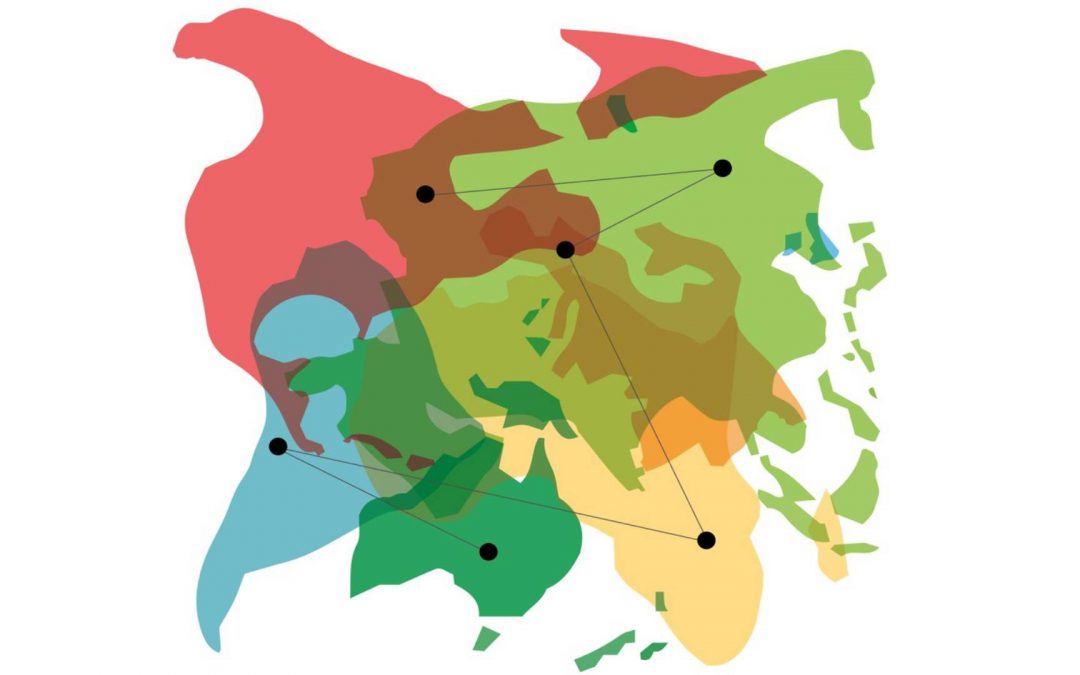GRIP publishes the new winners of the 2022 call for proposals

GRIP publishes the new winners of the 2022 call for proposals
New geographies of pharmaceutical development: vaccine R&D for neglected diseases in the Global South
The project aims to study the new ways of organizing and producing technologies that characterize the new geographies of bio-technological innovation by analyzing vaccine and other immunebased products development for the so-called ‘neglected diseases’ in the Global South. The remarkably rapid pace of Covid-19 vaccine development has called into question the thesis
that the pharmaceutical industry is facing an “innovation crisis”. The industry has demonstrated its capacity for innovative vaccines based on relevant biomedical technologies. However, the landscape of global pharmaceutical development is clearly in transformation, particularly with the emergence of Global South countries as new actors in the technological development and manufacture of health products. To grasp
how healthcare innovation is evolving, it is crucial to examine emergent forms of the knowledge production, flows of research, and developmental capital across old boundaries of north and south.
Project leaders: Koichi Kameda et Mady Malheiros Partner institutions: CEPED et CERMES 3 Amount allocated: 15 000 eur GRIP axis: Technologies, markets and vulnerabilities
Biophabrics : A new pharmaceutical globalisation? Production, access issues and regulation of biomedicines in the BRICS
The project focuses on the social, technological and political/legal structures of the global market for biomedicines, the pharmaceutical products of the biotechnology industry. Access to these emerging medical technologies, largely developed in the North, is a major health and economic development issue that this project proposes to decipher around the issues of production, consumption and regulation covered by GRIP’s axis 3. The project consists of exploratory field surveys in two BRICS countries: South Africa and Brazil. These surveys complement research conducted in Cuba and India. Project leaders: Yves-Marie Rault Chodankar et Nils Graber Partner institutions: CESSMA, CEPED, CERMES 3 and Université de Lausanne Amount allocated: 15 000 eur GRIP axis:Technologies, markets and vulnerabilities
Health mobility and support: medical evacuations of minors from Mayotte to Reunion Island
The project is in line with the work on therapeutic mobility and circulation, which questions the production of socio-spatial inequalities in health, from a sociological and anthropological perspective. The subject of medical evacuations in the overseas territories is part of a reflection on therapeutic mobilities and circulations and the political conditions that frame them. The integration of Mayotte, one of the four islands of the Comoros archipelago, into the French territory in 2011 has resulted in migratory pressure from the other islands of the Comoros and in increasing control of mobility from them. For Comorians, however, reaching Mayotte is often the only way to access medical care, particularly for serious pathologies. However, the Mayotte hospital centre (CHM) suffers from a technical platform and medical staff that are largely understaffed. This is why people requiring care that cannot be provided locally are evacuated to Reunion Island. This medical evacuation system, or EVASAN system, is available to patients in a legal or illegal situation. In 2021, nearly 1,500 people were evacuated from Mayotte, 30% of whom were minors. For these minors, a parent is authorised to accompany them but this is not always possible due to various constraints: the presence of other dependent children in Mayotte, lack of financial support for the stay in Reunion, etc. The general objective of this research project is to understand the effects of this context (social, geopolitical, legal and institutional) on the trajectories of minors requiring care and their families.
Project leaders: Dolores Pourette et Lynda Lotte Hoareau Partner institutions: CEPED, CERMES 3 Amount allocated: 15 000 eur GRIP axis: Circulations
Summer school in global history
The PhD summer school in global history was launched in 2020 on the initiative of Christof Dejung (University of Bern), with the aim of bringing together specialists in history and global studies from the Circle U and The Guild networks: Aarhus, Bern, King’s College London, Oslo, Paris Cité and Tübingen. Cancelled in 2020 and 2021 due to the pandemic, it took place in 2022 hosted by the University of Aarhus, in the Sandjberg conference centre, with excellent results. In line with GRIP’s objectives and in line with the dynamics of the seminars already approved, the aim is to create a network of excellence of junior and senior researchers in global history, anchored in the ICT and CESSMA laboratories. The opening to interdisciplinary debates in social sciences is privileged. In 2023, the aim is also to initiate a collaboration with the African Research Universities Alliance by inviting African doctoral students, in connection with the active collaborations of each university. Project leaders : Sophie Coeuré and Didier Nativel Partner institutions: ICT et CESSMA Amount allocated : 3 200 eur GRIP axis : Circulations
Companies, norms and territories in globalisation: a critical examination of the CSR movement based on experiences from the South
The ambition of the project is to analyse the articulation between institutional, organisational and territorial dynamics in globalisation through the critical study of corporate social responsibility (CSR) in the countries of the South. CSR puts two logics in tension: the market logic of profit-seeking and competition, on the one hand, and the civic logic relating to the societal mission pursued, on the other. Born in the countries of the North, the “CSR movement” has spread over the last few years on a global scale under the influence of multinational firms, global “standards” (e.g. Global Compact, ISO 26000) and also economic, ecological, energy and health crises. These multi-faceted crises have drawn attention to companies as both (i) a source of major risks; (ii) a stakeholder that is highly exposed to these risks and has a role to play in limiting their impact. Project holders: Petia Koleva Partner institutions: LADYSS Amount allocated: 15 000 eur GRIP axis: Circulations
Colloque international d’histoire et de sciences sociales sur le global et le sensible, 7-8 décembre 2023
The colloquium is the culmination of a two-year GRIP research seminar entitled: “Global Histories: an entry through the sensitive”. The conference will invite a double crossing. Firstly, the place of ‘Europe’ in global history, understood as the study of long-distance interconnections and including a series of approaches (connected and comparative, transnational, colonial, imperial, trans-imperial, etc.). It is also a history of non-European worlds whose own historicities in a long time span have been appreciated with greater finesse for the last forty years. If the latter was largely built against the former and its grand narrative of Westernisation, it is now time to proceed with more situated and concrete relationships between places – considering Europe as a region of the world among others that are better and better known.Project leaders: Quentin Deluermoz et Didier Nativel Partner institutions: Université Paris 13 et CESSMA Amount allocated: 5 000 eur GRIP axis: Global Urbanities and Circulations
À lire aussi

28th November 2024, presentation of the book: Pescando guindas en la siesta
Hebe Vessuri, a member of GRIP's Scientific Council, presents her latest book the 28th November 2024: Pescando guindas en al siesta, editorial SB. © Reserved rights Hebe Vessuri, presents her latest book the 28th November 2024:...

27th November, international symposium SEOSA
The international symposium Societal engagement of organizations and sustainability in Africa: catalysts for resilience in theface of multiple crises? SEOSA will take place the 27th November 2024 in Tunis. © Reserved rights The...

26th and 27th November -24 hours of the same world
24 hours of the same world: what has changed with globalization over the past 25 years? Tuesday November 26 to Wednesday November 27, 2024. The event will end up with a musical intervention and a cocktail ! © Dix-milliards-humains...

CAHIER GRIP : SEMANTIC MAPPING
GRIP has just published its second cahier of SEMANTIC MAPPING. This booklet is the result of work begun in 2021. We're proud to share it with you! © Reserved rights GRIP has just published its second cahier of SEMANTIC MAPPING. This...
